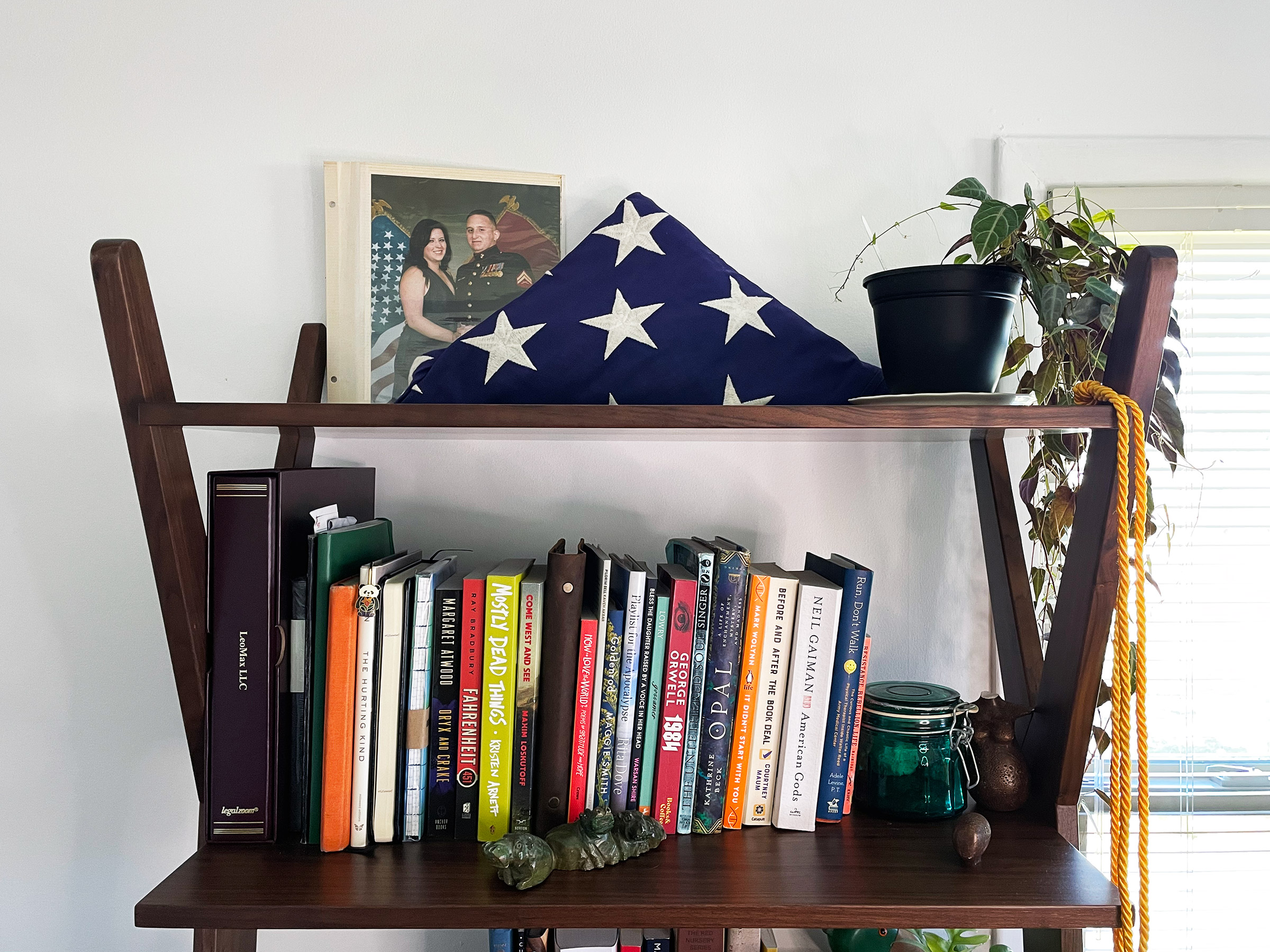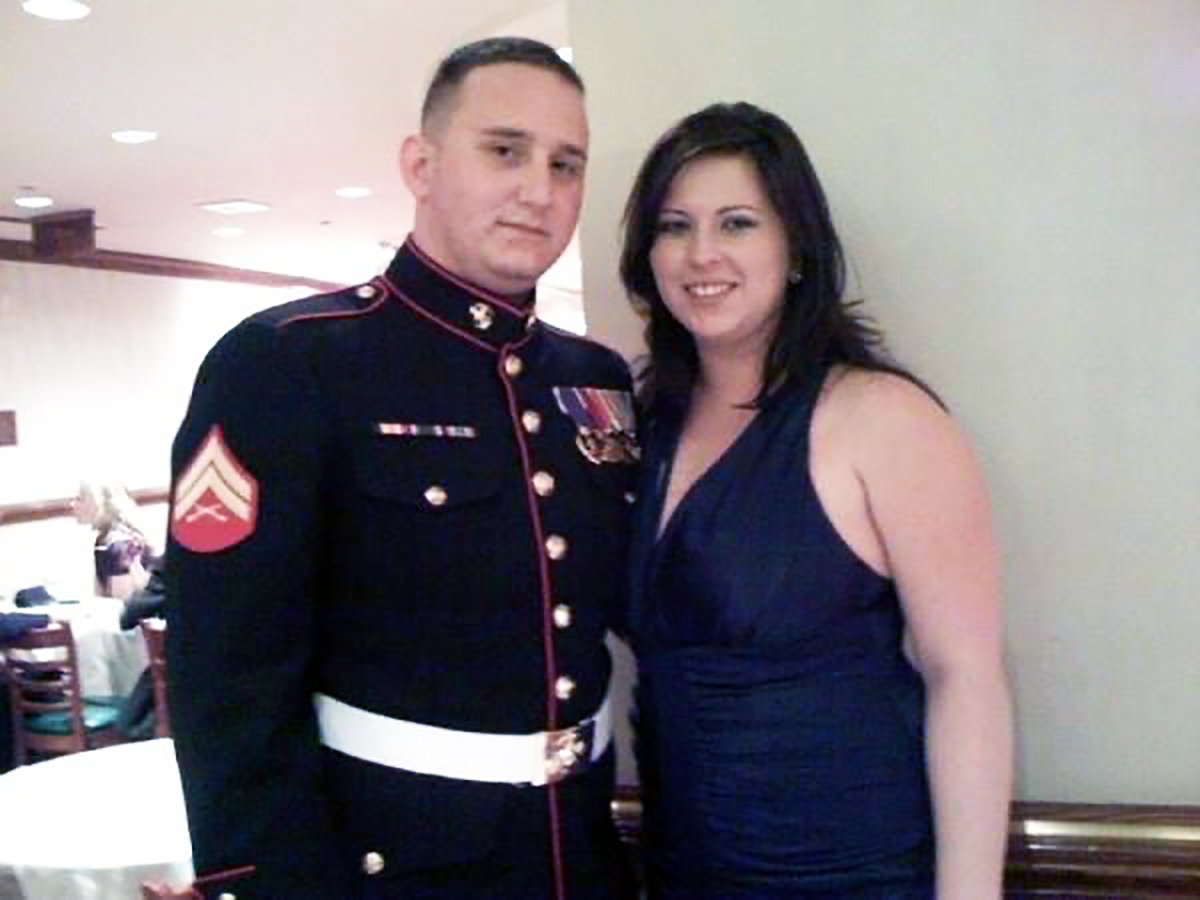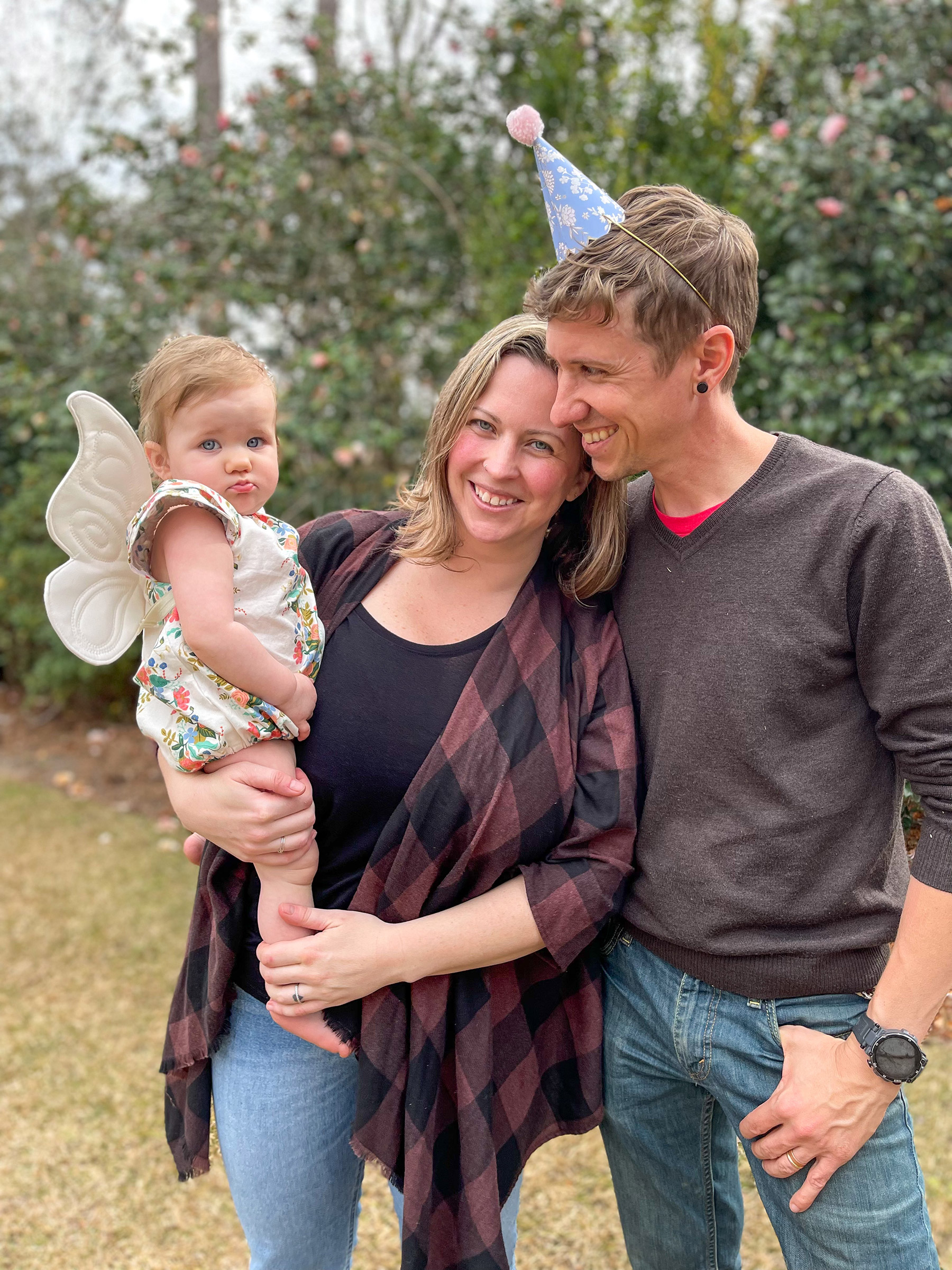
Days after I buried my husband, a veteran of the Iraq War, I sat on the floor of my living room with a gray-haired volunteer who’d driven more than 70 miles to help me apply for surviving-spouse benefits. I was 24 years old. My husband, 25, had overdosed on the Fentanyl he was prescribed and quickly became addicted to after losing his lower left leg to an IED.
The man explained to me as I signed document after document that I would be eligible for aid only as long as I remained unmarried. Deep in grief, I could hardly process what he was saying.
I didn’t want to remarry. What I wanted was my husband, whom I’d met when I was 13 in English class in our hometown of Foley, Ala., to come back to me the way he was before he’d gone to war.
As I signed the paperwork, I remembered being in that same room eight months prior. My husband, Jimmy Cleveland (Cleve) Kinsey II, had just medically retired from the Marine Corps. That time, I was with a different stranger–a young real estate agent holding a set of keys and a Home Depot gift card–signing the contract for our very first home.

The U.S. military makes a solemn vow to its soldiers: if you die, your surviving family members will be well taken care of. The benefits eligible military widows receive include a stipend each month that changes with inflation, health insurance, money for education, and on-base privileges, including the right to shop at the commissary. These benefits were earned, some of them paid for, by service members who made the ultimate sacrifice. But what the government often neglects to tell service members is that should their surviving family member remarry or “hold themselves out to the public” as someone’s spouse before they turn 55, they lose all of it.
Veterans Affairs (VA) benefits are notorious among widows for being difficult to navigate, and the part of the rule that affects domestic partnerships has caused much confusion and distress. Unsure of their rights, many have opted to hide out, refraining from posting anything on social media that suggests they’re in a long-term relationship. The vagueness has spawned rumors, including a common one about mailmen reporting widows for living with new partners. To my knowledge, there is no proof that this is happening, but widows have been reported by ex-boyfriends and anonymous folks leading to VA investigations. In some cases, benefits have been taken away.
Read More: ‘Was This All Worth It?’ Grieving the Death of One of the Last U.S. Soldiers Killed in Afghanistan
According to the nonprofit Tragedy Assistance Program for Survivors (TAPS), 450,000 survivors are receiving Dependency and Indemnity Compensation, and 75,000 of them are under age 55. The average age of a military widow is 25. This means that many widows will have to wait 30 years to remarry if they want to keep their benefits.
“We Support Our Troops” is nothing more than a hollow platitude if we’re not willing to follow through on our promise to take care of their families upon their deaths. “This is a penalty for moving on with your life, and that’s terrible,” Rep. Seth Moulton of Massachusetts, a former Marine, has said. “These are terribly anachronistic restrictions, and I think they show a lack of respect for survivors.”
There is an opportunity to fix this. On Sept. 13, Sen. Raphael Warnock of Georgia and Sen. Jerry Moran of Kansas introduced the Love Lives On Act, which would allow surviving military spouses to keep their benefits even if they decide to remarry. This is not the first bill of its kind, even if it is considered the most comprehensive and is fully endorsed by TAPS. The first Love Lives On Act, which was introduced on April 26, 2016, was eventually placed on the consensus calendar and forgotten. More recently, on February 25, Rep. Marie Newman of Illinois introduced the Supporting All Veteran Families Act. Its focus is on eliminating language that states widows lose their benefits for living with another person and holding themselves out openly as that person’s spouse. It also seeks to change the definition of marriage to include same-sex marriages. The bill was referred to the Subcommittee on Disability Assistance and Memorial Affairs in March but hasn’t moved since.
Remarriage does not erase the sacrifice made by our loved ones. It does not erase the trauma. The life my husband and I planned together was stripped away, first by addiction that resulted from treatment for his war wounds and then by his death. I still mourn him. I still have nightmares about his final months. As I write this, I am looking at my office bookshelf where I keep the folded flag I received at his funeral. But I have also tried to look not just to the past but to the future.

It’s been 12 years since that volunteer came to my door. I am 36 and have been with the same man for seven years. We live in his mother’s childhood home and have a beautiful daughter together. I live in fear of the wrong person finding out about this, of losing my benefits because I fell in love again and chose to build a life with my partner.
Marriage has never been an option for my boyfriend and me, so it isn’t something we think about much. But after our daughter was born, his mother asked if we could at least have a commitment ceremony in her backyard. “Let us celebrate your beautiful family,” she said. Holding back tears, I had to decline. It was too risky.
Even writing this feels risky. I worry someone at the VA will read this and put me under investigation. But that is how important this issue is to me. I would like the freedom to remarry without being punished for it, not only for myself but for the tens of thousands of military widows like me who have sacrificed so much. So many are afraid to talk about it because they’re scared of losing everything, but if we remain silent, it will be that much harder to see change.
This article was supported by the Economic Hardship Reporting Project, a journalism nonprofit.
More Must-Reads From TIME
- The 100 Most Influential People of 2024
- Coco Gauff Is Playing for Herself Now
- Scenes From Pro-Palestinian Encampments Across U.S. Universities
- 6 Compliments That Land Every Time
- If You're Dating Right Now , You're Brave: Column
- The AI That Could Heal a Divided Internet
- Fallout Is a Brilliant Model for the Future of Video Game Adaptations
- Want Weekly Recs on What to Watch, Read, and More? Sign Up for Worth Your Time
Contact us at letters@time.com